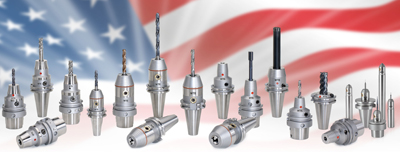WTE Hydraulic Chucks
WTE Hydraulic Chucks
ERI America introduces hydraulic chucks from WTE Präzisionstechnik GmbH.

ERI America introduces hydraulic chucks from WTE Präzisionstechnik GmbH. The high-performance holders represent an advanced part of the company's hydraulic chuck program.
Extreme temperature stability, super strong holding forces combined with excellent vibration damping and high radial stiffness reportedly improve surface qualities on the workpiece. Other outstanding characteristics are the solid construction, the sealed clamping system (maintenance free) and the positive cost savings because of reduced cutting times.
WTE hydraulic chucks offer high radial accuracy and excellent vibration damping. They reduce microstructure cracking on the tool's cutting edge and increase productivity, according to the company. WTE manufactures standard hydraulic chucks with axial and radial adjustment in the most common shank forms. Utilizing the company's reducing sleeves or its hydraulic chuck extensions makes this clamping tool flexible as well.
New micro universal chucks were developed specifically for high speed micro machining up to 60,000 rpm while delivering concentricity less than 0.005mm. Chucks offer a clamping range from 0.2 to 6.4mm with precision and reliability. They are an excellent choice for medical manufacturing, electronic device manufacturing and moldmaking.





